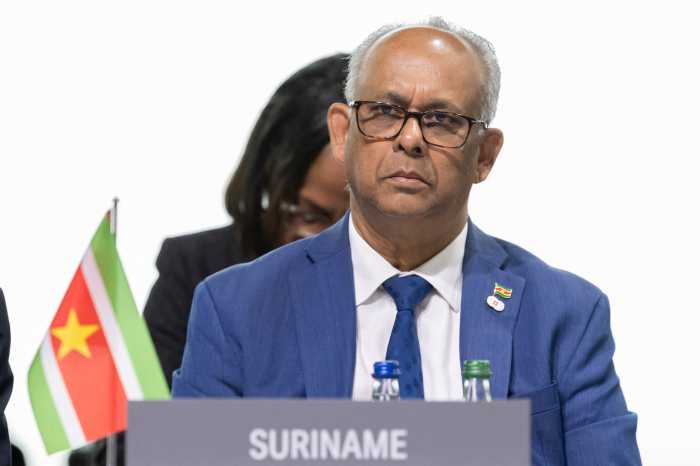It has barely been two weeks since Caribbean leaders held their summit in Jamaica and accepted a report from a marijuana commission, recommending that the classification of the drug be regulated similarly to that of alcohol, but various groups in the region are upping the pressure on governments to act and even to pay reparations to people who have been jailed for consuming or possessing small amounts of weed.
Leading the way are Rastafarian groups in Antigua, which earlier this year allowed a national to have up to 15 grams in his or her possession and for a family to cultivate up to four cannabis plans per household for personal uses. Convictions for persons who at the time of arrest had less than 15 will be scrubbed from personal records.
In the past week, the man considered as one of the elders of the Caribbean Rastafari movement supported recent calls from Antiguan Prime Minister Gaston Browne for reparations to be paid to Rastafarians and others who were wronged by previous policies and laws that made criminals of people using small amounts of weed for personal, religious or medicinal purposes.
Antiguan Franklyn King, regionally known as Ras Frank-I, contends that Rastafarians and other CARICOM nationals have been unfairly maligned over the decades for their advocacy to decriminalize marijuana use and possession of reasonable amounts, saying the time has come to find some form of reparations. Frank-I was a key member of the regional marijuana commission which handed in its report to governments in Jamaica earlier this month.
Earlier this year, PM Browne in an extraordinary moment of political contrition had formally apologized to Antiguans who were jailed and had their lives shredded by protracted court cases and eventual convictions. He said moves will be made to expunge the criminal blemishes on their records as convictions had prevented people from securing jobs and accessing loans among other basic services.
Browne said that once Antigua gets over the hurdles of starting up a production and export sector, “Rastafari be given a stake in production and benefits to be derived from the medicinal and other uses going forward. Let us regard this as reparations for Rastafari, for the wrongs inflicted on this significant minority group in our countries, through the so called ‘war on drugs’ which evidently was prompted by pernicious prohibition.
But as debate on the issue is ramped up in the wake of the Jamaica summit, Trinidadian Prime Minister Keith Rowley and Guyanese counterpart David Granger are still giving strong hints of a conservative approach to the issue, perhaps fearing that authorities could lose control if cannabis is legalized.
Rowley told reporters a week ago that “we have priorities and decriminalizing marijuana is not one of them. There are now discussions of marijuana as an economic entity. There are those who are arguing about marijuana as a harmless substance, marijuana as a medicinal breakthrough and so on For the government of T&T, the jury is still out on the science. Therefore we will be guided as it evolves,” he said, explaining that cabinet is not running away from the issue. It is just low priority he said.
Down south in Guyana, President Granger says that laws regarding small amounts could soon be changed, but cabinet will have to find the time to deliberate on the issue.
“What I will say is that we are moving towards the removal of custodial sentences for the possession of small amounts of marijuana. The commission is unanimous in its view that the current classification for cannabis / marijuana as a ‘dangerous drug’ with ‘no value’ or narcotic should be changed to a classification of legal cannabis as a ‘controlled substance,” he said.
He ruled out any form of industrialization in the Guyana context, noting the way relatively larger land mass of Guyana compared to the small islands of the Caribbean.
So far, Jamaica, Antigua and Belize have bolted from the rest of the pack and have gone ahead and allowed their nationals to legally possess various amounts of weed.

























